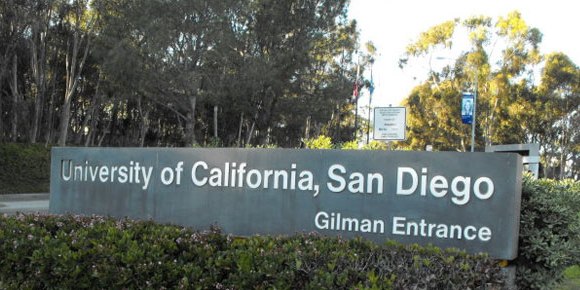美国加州大学圣地亚哥分校神经学系Dr. Xu Chen实验室招聘博士后1-2名
加州大学圣地亚哥分校神经学系Dr. Xu Chen实验室招聘博士后1-2名

加州大学圣地亚哥分校神经学系简介
加州大学圣地亚哥分校(University of California, San Diego, UCSD)位于南加州地区圣地亚哥市的海滨城镇拉荷亚(La Jolla)。这里是美国的第六大城市,以美国最舒适气候、主题娱乐公园、和文化历史建筑,被评为美国最棒的10个城市之一,同时也是美国最安全的城市之一。UCSD为美国全国性第一级大学(Tier I),隶属加州大学行政系统,拥有所有加州大学中最大,占地866公顷的校园。 UCSD已经成为美国顶尖以研究科学为主,且学术声望非常高的研究性公立大学,被誉为“公立常春藤”之一。 UCSD的神经学系(Department of Neurosciences)隶属医学院,在美国研究协会组织的全美大学研究生院排名中历年来排名第一,以其庞大的师资力量,充足的研究经费,以及丰富的交流合作资源著称。UCSD 为研究生和博士后的学术职业道路提供出色的培训环境和职业发展机会。
Dr. Xu Chen课题组简介
位于加州大学圣地亚哥分校神经学系的Xu Chen实验室致力于揭示阿尔茨海默病和相关神经退行性疾病的神经毒性机制。课题组使用小鼠和果蝇模型、iPSC 衍生神经元、原代神经元、脑切片培养、结合最先进的分子和生物化学技术来研究 tau 蛋白介导的神经变性的分子基础。课题组重点研究 tau 蛋白如何致病,以及毒性tau蛋白如何在大脑内实现传播,最终目标是设计出基于机制的治疗或预防措施。现有美国国家卫生院(NIH) 资助的项目,研究包括tau 积累和扩散的机制、tau 介导的神经毒性、以及代谢和激素信号通路如何参与调节 tau 的病理过程。同时,课题组与UCSD以及其他院校有着多个跨领域合作项目。更多信息请见课题组网站: https://www.xuchenlab-ucsd.org
课题组PI简介
Dr. Xu Chen (陈栩),2006年毕业于北京大学生命科学学院,2012年获得美国威斯康星大学麦迪逊分校遗传学博士学位(师从美国科学院院士Barry Ganetzky),继而在加州大学旧金山分校(UCSF)Gladstone研究所Li Gan实验室进行博士后研究。现就职于加州大学圣地亚哥分校(UCSD)神经学系,任助理教授。在博士后期间主要研究tau蛋白的致病机理,其一作及共同通讯作者工作发表在Nature Medicine, Journal of Cell Biology, Cell Metabolism等国际著名期刊,以共同作者在Cell, PNAS, Nature Communication等杂志发表多篇论文。Dr. Chen曾获得国际生物学奥赛金牌,美国遗传学会研究生奖,阿兹海默症协会(Alzheimer’s Association)杰出青年科学家奖,美国国家卫生院(NIH) K99/R00基金等奖项。
招聘意向
申请人应于近期获得或即将获得生物医学及相关领域博士学位,应具有独立完成研究课题的能力(能够独立地设计、完成实验,并分析实验结果),在顶级期刊上发表过第一作者研究论文。热爱科研,力求上进,遵守实验规范,谨守学术道德,具备良好的英文写作和沟通能力及团队协作精神。有神经分子生物学,细胞生物学,生物化学,小鼠/果蝇遗传学背景的申请人会优先考虑。
如何申请
请提供申请意愿,简历,以及三名推荐人的联系信息,发送电子邮件至:Xu Chen, PhD, x1chen@health.ucsd.edu
Postdoctoral Fellow – Molecular mechanism of tau pathogenesis in Alzheimer’s disease
The Neurodegenerative Disease Research Laboratory lead by Dr. Xu Chen at UC San Diego is recruiting a postdoctoral fellowto join our team dedicated to unravelling the mechanisms of neurotoxicity in Alzheimer's disease and related dementia (tauopathies). We use mouse and fly models, iPSC-derived neurons, primary neurons, brain slice culture, state-of-the-art molecular and biochemistry techniques to investigate the molecular basis for tau-mediated neurodegeneration. We study how tau protein becomes pathogenic, and how toxic tau speciesspread from cell-to-cell within the brain, with the ultimate goal of devising mechanism-guided intervention to counteract tau toxicity. Our NIH-funded projects include understanding the mechanisms of tau accumulation and spreading, how metabolic signaling pathways modulate tau pathogenesis, and mechanisms underlying tau-mediated neurotoxicity. We are looking for highly motivated candidates to lead the projects in the lab and get involved in multiple collaborative projects at UCSD and outside institutes. UCSD offers outstanding training environment and career development opportunities for both academic and industrial career path. The salary is above NIH scale and the benefits are excellent. The University of California, San Diego is located on the La Jolla Mesa in close proximity to The Scripps Research Institute, the Salk Institute, and the Sanford Burnham Prebys Medical Discovery Institute Research and provides a highly stimulating, collaborative, and interactive research environment in a beautiful location.
Additional information can be found at https://www.xuchenlab-ucsd.org
Candidates should have a track record of successfully completed research project(s), first-author publication(s) in top-tier journals, excellent work ethic, strong writing and communication skills. Candidates with research experience in neuroscience, cell biology, biochemistry and/or molecular biology, and mouse genetics are encouraged to apply. The successful candidates will conduct both independent and collaborative research within a productive scientific research group. The candidates are also encouraged to explore new research areas and seek independent funding as part of their own career development.
All qualified applicants will receive consideration for employment without regard to race, color, religion, sex, sexual orientation, gender identity, national origin, or disability.
To Apply:
Please send curriculum vitae and contact information for three references to: Xu Chen, Ph.D., Dept. of Neurosciences, UCSD, 9500 Gilman Drive, La Jolla, CA 92093-0612; e-mail: x1chen@health.ucsd.edu

.png)



 粤公网安备 44010402002828号
粤公网安备 44010402002828号
